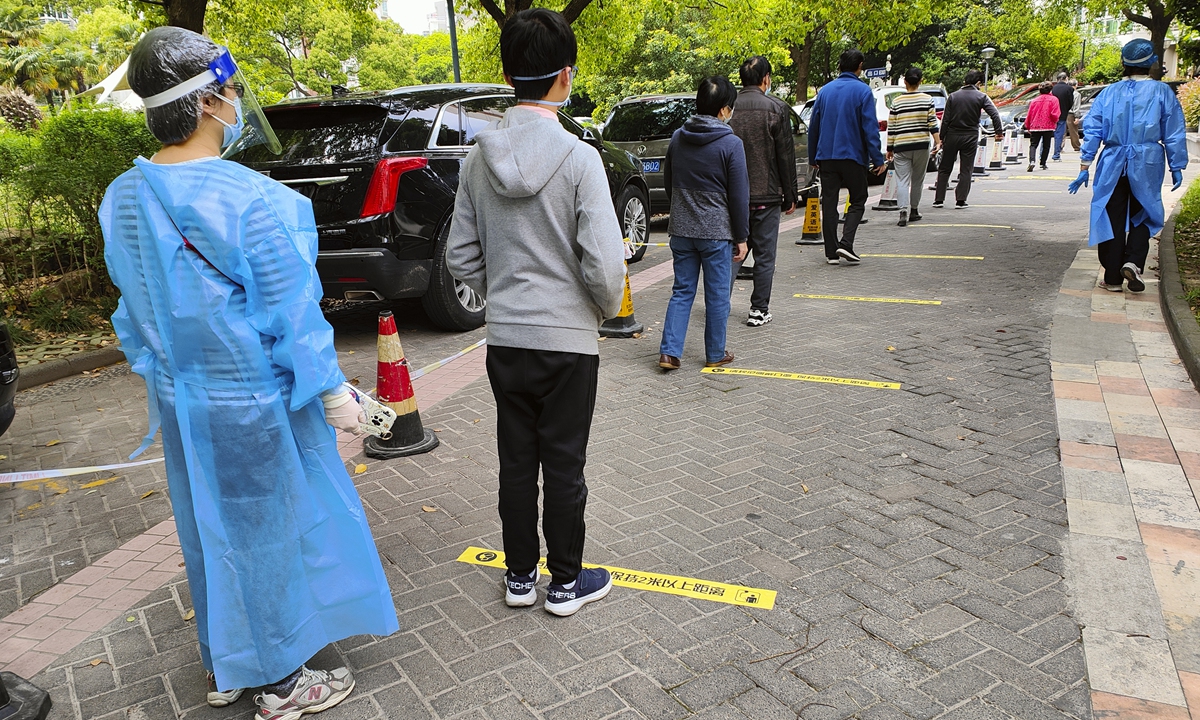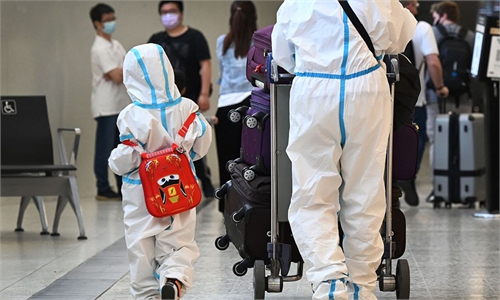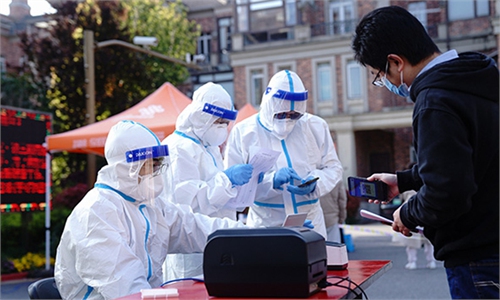Fighting Omicron does not mean lockdown and citywide nucleic acid: top Chinese health expert

Photo: CFP
The latest Omicron variant-fueled epidemic waves in Beijing and Shanghai is a test of the governance capacity of these megacities, Liang Wannian, head of the COVID-19 response expert panel under China's National Health Commission (NHC), said at a press conference on Friday, noting that with a population of more than 20 million people, the rapid and insidious spread of the Omicron mutant strain has placed higher demands on these megalopolises in terms of the organization and implementation of anti-epidemic measures, such as the ability to detect cases and to provide medical treatment.
The ongoing epidemic in Shanghai and the sporadic outbreaks now being fought in Beijing have brought many valuable lessons about the battle against the epidemic in China, Liang said at the conference held by the Information Office of the State Council on Friday morning.
In response to the strong contagiousness, rapid transmission, high proportion of asymptomatic infected people and insidious transmission of the Omicron mutant strains, China has to race against this virus in terms of time, react faster and work harder than the virus, Liang noted.
He pointed out that China needs to summarize the experience of prevention and control and improve the response to the original strains of the COVID-19 such as Alpha and Delta.
"Fighting Omicron does not necessarily mean citywide, all-volunteer nucleic acid, and even less necessarily citywide, all-area lockdown," Liang stressed, noting that truly early detection, isolation, reporting and treatment can help the cities take the initiative in the fight against the epidemic.
As of Friday, the cumulative local COVID-19 diagnosis in Shanghai exceeded 50,000 cases and 26,411 cases were cured and discharged over the latest outbreak. Shanghai recently announced the first batch of 534 regular nucleic acid sampling sites, which will provide free nucleic acid testing services for the public from May 1 to June 30, according to Shanghai local authorities.
The latest round of the outbreak in Beijing has affected 12 districts with over 200 cases of infection by Friday. On the same day, Beijing's Chaoyang district conducted the third round of sweeping tests on 3.5 million residents.
"In both Shanghai and Beijing, significant progress has been made in the prevention and control of the current epidemic... It has been proven that we can effectively control the spread of the epidemic by adopting effective strategies such as the dynamic zero strategy," Liang said.
At the same time, since the number of senior citizens in Beijing and Shanghai is higher than the national average, Liang also noted that enhanced vaccination of the elderly is an effective means to protect their health and lives.
In order to contain the COVID-19 epidemic, Shanghai and Beijing mobilized the whole society to fight the epidemic, with faster speed and more scientific and effective means and methods, COVID-19 will surely be defeated, Liang stressed.
Global Times



